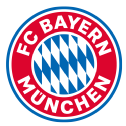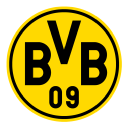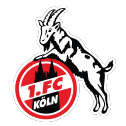Are you ready for some fussball? The 2020-21 German Bundesliga season kicks off on Friday with serial champions (and winners of the last eight titles) Bayern Munich hosting Schalke — watch live in U.S., 2.30 p.m. ET, ESPN — and with that, plenty of anticipation for what promises to be an exceptional campaign.
The Bundesliga has it all: fan passion, top American prospects, world-class stars from A (Alphonso Davies, Bayern Munich) to Z (Denis Zakaria, Borussia Monchengladbach), a titan in Bayern and a strong chasing pack led by Borussia Dortmund.
– Stream new episodes of ESPN FC Monday-Friday on ESPN+
– Stream Bundesliga all season long on ESPN+
– Take our quiz: Which Bundesliga club should you support?
Having picked your Bundesliga team in our illustrated quiz, now it’s time to get up to speed on the best players, the nuances of German soccer and the biggest rivalries to track throughout the 2020-21 campaign.
Let’s get started.
Jump to: Title contenders | 50+1 rule | 18 teams, 18 players to watch | The Americans | A league of David vs. Goliath | Fan culture | Big rivalries
Who will contend for the title: Bayern and who else?
RB Leipzig led the league at the midway point last season and eventually reached the Champions League semifinals. Borussia Dortmund boast one of the most terrifying attacks in the world and nearly took down Paris Saint-Germain in the Champions League round of 16. Bayer Leverkusen made the Europa League quarterfinals. Eintracht Frankfurt made the semis the year before that. There are plenty of German teams that have their respective acts together, but whether any of them will contend for the league title is up to the champs.
Bayern Munich have won eight straight league crowns and are coming off of a Champions League sweep — 11 matches, 11 wins and their first European Cup since 2013. The champs were mired in seventh place a week into December, but under November hire Hansi Flick, they ignited, taking 58 of a possible 60 points from their last 20 league matches and rolling to the title while sweeping Europe as well.
With little turnover from last season’s squad, Bayern are the obvious favourites again — oddsmakers seem to be giving them -700 odds or so, equivalent to about an 88% chance — and nothing else matters until we see if they’ve regressed or fallen into a hangover of sorts. If they have, then others are primed to strike.
Dortmund have, at the moment, fended off Manchester United’s advances for winger Jadon Sancho and boast the best young centre-forward in the world in Erling Haaland. They should be as exciting as ever, and oddsmakers seem to be placing them in the +650 or so range (~13%). Leipzig lost Timo Werner to Chelsea but return all of last year’s other difference makers, and manager Julian Nagelsmann has had some time to craft a new, Werner-less attack. Their odds seem to be in the +2000 range (5%). You can talk yourself into a team like Leverkusen, Eintracht or Wolfsburg having a dark-horse’s chance, but in Germany everyone but Bayern is a dark horse until proven otherwise. — Bill Connelly
I’ve heard people talk about a “50+1” rule? What is that?
In Germany, sport and football especially have traditionally not been considered part of the entertainment industry. The clubs were and still are supposed to serve communities, local or regional, and not customer bases. And the 50+1 rule is a reminder of that. It stipulates that 50% of the shares plus one share in a club’s professional football division must remain in the possession of the non-commercial, non-profit parent club and its members. This has been translated to: In Germany, the fans own their clubs.
And while this, formally, remains correct, the 50+1 rule has been undermined by several exemptions, by clubs finding loopholes to finance their professional football division and compete for titles and players with the other European clubs.
Company-owned Bayer Leverkusen and VfL Wolfsburg have never played under the rule, TSG Hoffenheim are owned by billionaire Dietmar Hopp, who took over the majority shareholding with an exception permit from the German Football League in 2015. The permit allows private investors with more than 20 years of uninterrupted and significant financial support for a club to take over.
RB Leipzig are effectively owned by Austrian energy drink giant Red Bull. While formally keeping up with the 50+1 rule, they have less than 20 members with voting rights.
The vast majority of the other clubs have sold off shares of their outsourced professional football divisions. At Hertha Berlin, investor Lars Windhorst holds 66% in it after injecting close to €400 million in the past 12 plus months.
1:39
Jan Aage Fjortoft says Borussia Dortmund can’t trail off like it did last season in the title race.
Borussia Dortmund and Bayern Munich are no different. They also have companies taking a great interest in their sporting and economic fate.
It may all sound bleak, and the 50+1 rule might no longer be of overall concern for the professional football divisions, but it continues to guarantee that fans and members have their say in the parent club. The supporters still have a voice in their club’s other politics, just not the sporting side. But football in Germany is much more than that and the rule serves as a reminder that clubs are anchored in the local and regional communities. — Stephan Uersfeld
18 teams, 18 players to watch
 Bayern Munich | Leroy Sane | 24 | Forward
Bayern Munich | Leroy Sane | 24 | Forward
Bayern Munich already boast a host of attacking riches, but with Ivan Perisic and Philippe Coutinho no longer at the club on loan, new signing Sane will be tasked with stepping into the void and moving Bayern’s attack to the next level. The £40m arrival from Manchester City should be one of the signings of the season, and with the likes of Robert Lewandowski, Serge Gnabry, Thomas Muller and Kingsley Coman all in top form, Sane is a devastating addition to the Bayern Munich attacking arsenal.
 Borussia Dortmund | Erling Haaland | 20 | Forward
Borussia Dortmund | Erling Haaland | 20 | Forward
The Norwegian superstar arrived at Dortmund in January and made an immediate impact, scoring 16 goals in 18 appearances. He’s rated as one of the world’s best strikers, regardless of age, and will be integral to Dortmund’s plans and aspirations this year in a forward line up that includes Thorgan Hazard, Marco Reus, Jadon Sancho and Giovanni Reyna. Also keep an eye on Jude Bellingham. The young England midfielder has a huge future ahead of him.
 RB Leipzig | Dayot Upamecano | 21 | Defender
RB Leipzig | Dayot Upamecano | 21 | Defender
Upamecano is on the radar of just about every big club in Europe, but Leipzig are adamant he will stay for another season. The young French centre-back is key to Julian Nagelsmann’s tactics and as one of the world’s best ball-playing defenders, is integral to their transitional play. Also keep an eye on Dani Olmo, the Spanish midfielder, and new signing Hwang Hee-Chan, who will both hope to step into the void left by Chelsea-bound Timo Werner.
 Bayer Leverkusen | Patrik Schick | 24 | Forward
Bayer Leverkusen | Patrik Schick | 24 | Forward
Keep your eyes on midfielders Nadiem Amiri and Florian Wirtz at Leverkusen this season, who will hope to fill the void left by Kai Havertz, but Schick is absolutely key to their plans and aspirations this season. Schick spent last season on loan at Leipzig but has now signed for Leverkusen on a permanent deal worth £24m. With Kevin Volland now at AS Monaco and Leon Bailey‘s future uncertain, Schick will be the focal point of the team this season.
 Borussia Monchengladbach | Marcus Thuram | 23 | Forward
Borussia Monchengladbach | Marcus Thuram | 23 | Forward
Borussia Monchengladbach play some of the best football in Germany and their forwards all complement each other in a wonderful way. Alassane Plea is superb, while Breel Embolo will hope to have a big season, but we’re really looking forward to seeing Thuram take another step forward this season. He scored 10 in the Bundesliga last term, and chipped in with eight assists, so expect big things from him.
 TSG Hoffenheim | Dennis Geiger | 22 | Midfielder
TSG Hoffenheim | Dennis Geiger | 22 | Midfielder
Christoph Baumgartner is one of the Bundesliga’s best goal-scoring midfielders, grabbing seven last term, and while he’s key to their hopes this season, as is defender Stefan Posch, we’re excited to see how Geiger fares. He’s Hoffenheim’s Thiago or Joshua Kimmich — a stylish midfielder who becomes the team’s glue. He’s going to have a huge 2020-21 campaign and expect plenty of aggression from the 22-year-old.
 Wolfsburg | Jerome Roussillon | 27 | Defender
Wolfsburg | Jerome Roussillon | 27 | Defender
Josip Brekalo and Wout Weghorst (if he stays) will be Wolfsburg’s main attacking threats, while Koen Casteels is one of the best goalkeepers in the Bundesliga, but they have two of the best full-backs in Europe. While Kevin Mbabu is out with a long-term ligament injury, we’re excited to see how Roussillon fares this season down Wolfsburg’s left flank.
 Eintracht Frankfurt | Filip Kostic | 27 | Midfielder
Eintracht Frankfurt | Filip Kostic | 27 | Midfielder
They could have a huge season and have some of the most thrilling attackers in the Bundesliga in Andre Silva, Daichi Kamada, the rampaging wing-back Danny da Costa and the ever-reliable Bas Dost. But Kostic is one of the best wingers in the German top flight, having finished fifth in the assist table last season with 11, so he is absolutely key to Adi Hutter’s side’s aspirations this term. We also love watching centre-back Martin Hinteregger.
 Werder Bremen | Tahith Chong | 20 | Midfielder
Werder Bremen | Tahith Chong | 20 | Midfielder
Bremen will be a bit of an unknown quantity this season but Josh Sargent should have a great campaign while they will hope to keep star winger Milot Rashica, who has been hotly tipped for a move to the Premier League. But they have young Manchester United midfielder Chong on loan this term, and judging by his well-taken goal in the DFB-Pokal opening-round win over Carl Zeiss Jena, he could have a very special season.
 Hertha Berlin | Matheus Cunha | 21 | Forward
Hertha Berlin | Matheus Cunha | 21 | Forward
The soon-to-be Brazil international was linked with a move to Paris Saint-Germain already this summer, and he will not stay at Hertha forever. What a player. Expect the unexpected from 21-year-old Cunha, the big-city player at a club hoping to become a big-city club.
 Union Berlin | Max Kruse | 32 | Forward
Union Berlin | Max Kruse | 32 | Forward
The 32-year-old German Zlatan returned to the Bundesliga after just one year in Turkey. The attacker sat at the World Series of Poker final table in Las Vegas in 2014, has played for Germany and too many clubs to mention in the Bundesliga. He has no allegiances and that’s what makes him so dangerous.
 Schalke 04 | Rabbi Matondo | 20 | Forward
Schalke 04 | Rabbi Matondo | 20 | Forward
Friendship got him into trouble. The Welsh winger wore a Jadon Sancho jersey while working out. They are mates, but Sancho plays for Dortmund and Matondo for Schalke. He was fined but watch out for this young man for other reasons. His pace and youthful exuberance out wide are just what veteran attacker Sead Ibisevic needs in the box.
 FC Augsburg | Florian Niederlechner | 29 | Forward
FC Augsburg | Florian Niederlechner | 29 | Forward
In his first season with Augsburg, the 29-year-old was the club’s life insurance policy. He scored 13 goals and set up another eight. Mostly finishing from just outside the six-yard box, the attacker’s movements will be the key to Augsburg’s survival.
 FC Cologne | Elvis Rexhbecaj | 22 | Midfielder
FC Cologne | Elvis Rexhbecaj | 22 | Midfielder
On loan from Wolfsburg for another season, the hard-running Kosovo-born midfielder is instrumental for coach Markus Gisdol’s pressing. His mentality will be needed in a team not relying on star players.
 VfB Stuttgart | Gregor Kobel | 22 | Goalkeeper
VfB Stuttgart | Gregor Kobel | 22 | Goalkeeper
Going into the season as one of the underdogs, the former Bundesliga champions must bank on their 22-year-old keeper, who has joined on a permanent transfer from Hoffenheim after impressing during a season-long loan in 2. Bundesliga last term.
 Arminia Bielefeld | Amos Pieper | 22 | Defender
Arminia Bielefeld | Amos Pieper | 22 | Defender
At 22, the former Borussia Dortmund reserve centre-back played his breakthrough season in 2019-20. The right-footed defender has excellent distribution, is strong in the air and wants to impress at the highest level.
 SC Freiburg | Christian Gunter | 27 | Defender
SC Freiburg | Christian Gunter | 27 | Defender
The Freiburg left-back set up eight goals last season, crossed the ball in 118 times and scored two goals himself. Coming through the ranks of the academy, the 27-year-old is exemplary for the Freiburg way, and has played for the club in 232 league games in the Bundesliga and 2. Bundesliga.
 Mainz | Ridle Baku | 22 | Midfielder
Mainz | Ridle Baku | 22 | Midfielder
In 1997, Karl-Heinz Riedle scored a brace for Borussia Dortmund in the Champions League final against Juventus, less than a year later Ridle Baku was born in Mainz. Ridle was his nickname first, but it’s now in this Germany U21 right-back’s passport as he looks for his breakthrough season in the Bundesliga. — Stephan Uersfeld and Tom Hamilton
The Americans
There has been a rich history of United States players turning out in the Bundesliga with the likes of Claudio Reyna and Christian Pulisic both leaving incredible legacies, but never before has there been such an abundance of young promising U.S. talent playing in the German top flight. Pulisic’s incredible success at Borussia Dortmund prior to his big-money move to Chelsea made the other German teams sit up and take notice of the talent Stateside. From Giovanni Reyna at Dortmund, to Josh Sargent at Werder Bremen, to John Brooks at Wolfsburg, Timothy Chandler at Eintracht Frankfurt and Tyler Adams at RB Leipzig, nearly every team in the Bundesliga has an American in their ranks. Even though Weston McKennie has now gone to Juventus (his form at Schalke put him on the Serie A giant’s radar), for fans of the USMNT, there is no better league in Europe to watch than the Bundesliga.
Expect big things from Reyna this season, still just 17 years old, as he continues to develop and excel alongside Erling Haaland and Jadon Sancho at Dortmund. Sargent will impress at Werder with his versatility king and Adams — fresh from his Champions League heroics — will become a mainstay at Leipzig under Julian Nagelsmann. And then there are the next crop breaking through with the likes of Chris Richards, Nick Taitague, Matthew Hoppe and Mason Judge knocking at the door. — Tom Hamilton
The Davids and Goliaths
Bayern Munich stand as the giant towering above the Bundesliga. Having won the German top flight eight seasons on the bounce, it will take a monumental effort from anyone to force them off the throne. But, whisper it quietly, if Borussia Dortmund manage to keep Jadon Sancho then this will be their best chance to supplant the perennial giants of the Bundesliga. Dortmund and RB Leipzig — even without Timo Werner — will be the two teams chasing down Bayern this season, but even Julian Nagelsmann feels Bayern have too much strength in depth and are favourites to retain the Meisterschale.
Underneath these three you have the ever-improving Borussia Monchengladbach — who play the best football in the Bundesliga — while Bayer Leverkusen have to negotiate life post-Kai Havertz. Both are targeting the fourth Champions League spot.
Then you have the next tier of sides, including Wolfsburg and Hoffenheim and the much-adored Eintracht Frankfurt, who will be gunning for the Europa League spots. Then come the ‘traditional’ sides like Schalke, Hertha Berlin, Cologne, Werder Bremen and newly promoted VfB Stuttgart, whose campaigns can be decided on the flip of a coin — their unpredictability is thrilling as it is frustrating. Then you have the more beloved hipster clubs who will be focusing on avoiding the drop — the likes of Union Berlin, Arminia Bielefeld and SC Freiburg — and then Mainz and Augsburg who will both be scrapping for survival. They are the Davids of the Bundesliga, but with Bayern enjoying another impressive summer in the transfer market, it’s going to take one hell of an effort to hit them right between the eyes. — Tom Hamilton
The fan passion and what we’ll be missing
C’mon feel the noise! The Bundesliga is nothing without its fans. They are the league’s lifeblood. And they will return, starting this weekend! Attendances ranging from 500 at Wolfsburg vs. Bayer Leverkusen, to 10,000 at Dortmund vs. Borussia Monchengladbach, will be allowed after guidelines released this week gave teams the chance to welcome up to 20% of their capacity if certain criteria were met. Unfortunately for Bayern, a spike of positive cases in Munich — the seven-day incidence of positives per 100,000 people rose from below 34 to 47.6 overnight, above the allowable 35 mark for safe attendance — mean their season opener will be behind closed doors.
But eventually, all fans will be back They will return to Dortmund’s famous Yellow Wall, the Sudtribune with a standing capacity of 25,000, Europe’s largest standing terrace. An entire microcosm of society, soaking up all walks of life and turning them into one giant black and yellow mass. Their “tifos” (or fan-produced art displays and banners) are exemplary and images of them have travelled around the world and back on social media.
They will return to Eintracht Frankfurt’s stadium, where the wild and raucous fans have breathed new life into a once struggling giant. They will return to Bayern Munich’s stadium, and they will celebrate their team for what they achieved and they will hold the club’s leadership, the German FA responsible for sponsorship deals, for arrangements made to cut out fans. Fans in Germany are passionate, and they are powerful.
They are powerful at Hertha Berlin where a group of fans, the Axel Kruse Youth, named after a club idol, are at the forefront of the club’s plans to build a new stadium. During the lockdown across Germany, they worked to save local pubs from going out of business by collecting money for those landlords dedicating their lives to the club. And they are powerful at Union Berlin, where they love their club so much they donated their own blood to rescue their club and then re-build the Alte Forsterei stadium with their own hands.
In Germany, the fans make football tick.
They are missed, shut out by the pandemic, but they have not been silenced. Maybe in the stands, but not in their fight to preserve what makes Bundesliga special. Their fight against perceived injustice, against ownerships and for conserving standing terraces, moderate ticket prices and for more power within the system from the outside might be unnerving, yet it is crucial for the game itself. Its’s good against evil, it always has been. No matter which side you are on. You can take sides. What is good and what is evil anyway?
There are three dimensions in football. The beauty of the game, the thrill of the competition and what happens in the stands. Those three dimensions fill encyclopedias full of stories, but only if all three of them are in tune the Bundesliga can unveil its full potential. Gradually, the fans will return and add the final layer. — Stephan Uersfeld
The rivalries you need to know
Der Klassiker | Bayern Munich vs. Borussia Dortmund This isn’t a matchup with geographic ties or a massive history — Bayern’s most historic, geographically closest rivals (1860 Munich, 1. FC Nurnberg) are busy toiling away at lower levels at the moment. Instead, this is simply a battle between the two teams most likely to be contending for the title in a given year. They’ve won 22 of the past 26 league crowns, and Bayern’s 1-0 win in Dortmund last June all but ended the 2019-20 title race.
The Revierderby | Borussia Dortmund vs. Schalke This one’s big. Among a cluster of clubs in Germany’s Ruhr region, Schalke and Dortmund have stood out the most through the years. The two clubs have two of the most intense fan bases in the country, and in 96 Bundesliga matchups, BVB’s won 34 to Schalke’s 32, with 30 draws. Hard to get more even than that.
The Rheinderby | Borussia Monchengladbach vs. 1. FC Cologne These two clubs are separated by less than 40 miles and reached their respective peaks at almost exactly the same time in the late-1970s and early-1980s. This is a finely aged hatred, and and as far as nicknames go, it’s hard to beat Foals vs. Billy Goats. (You can also combine any two of Germany’s industrial clubs — BVB, Gladbach, Schalke, etc., to find a pretty solid amount of dislike. It’s like the NFC East.)
Berlin derby | Hertha Berlin vs. Union Berlin This is a friendly rivalry if ever one existed. Back before Germany’s reunification, supporters of these clubs, one from each side of the wall — Hertha from the West, Union from the East — supported each other’s teams. Of course, it helped that they never played each other. They split home wins in 2019-20, Union’s first in the Bundesliga, and if they keep scrapping with one another, the sparks might start to fly.
RB Leipzig vs. everyone This one doesn’t have a name, but despite the team’s extreme watchability, Leipzig’s rise from nonexistence to the Champions League semifinals in barely more than a decade — with obvious help from Red Bull — has drawn the ire of almost literally every German football fan outside of Leipzig itself. They gamed their way around the beloved 50+1 rule and rode corporate funding to giant status. Neither the country’s giants nor non-giants appreciated it all that much.
– Bill Connelly